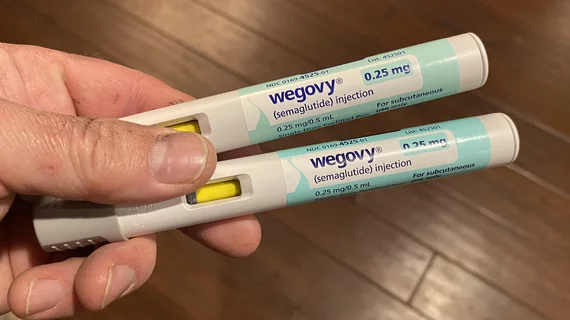FDA ends semaglutide shortage, closing the door on compounded Wegovy, Ozempic
The U.S. Food and Drug Administration (FDA) has announced that a years-long shortage of Wegovy and Ozempic, two popular prescription-only semaglutide injections, is officially over. They have both been removed from the FDA’s drug shortage list after first landing there back in 2022.
Semaglutide is a GLP-1 receptor agonist being sold by Novo Nordisk under the brand names Wegovy, Ozempic and Rybelsus. GLP-1 receptor agonists were originally developed to treat diabetes, but they are being used more and more to help obese and overweight patients lose weight. In addition, semaglutide has specifically been linked to consistent health benefits for heart failure patients and patients undergoing heart bypass surgery.
The update’s impact on the U.S. pharmaceutical market
While semaglutide was on the drug shortage list, outsourcing facilities had a green light to produce their own “essential copy” versions of Wegovy and Ozempic. Compounded drugs are not technically approved by the FDA, though they are still required to meet certain conditions predetermined by the FDA. Now, however, those compounded versions will no longer be legal.
“We are pleased the FDA has declared that supply of the only real, FDA-approved semaglutide medicines is resolved, affirming that Novo Nordisk is meeting or exceeding current and projected nationwide demand,” said Dave Moore, executive vice president of U.S. operations and global business development and president of Novo Nordisk, said in a statement. “No one should have to compromise their health due to misinformation and reach for fake or illegitimate knockoff drugs that pose significant safety risks to patients. Patient safety remains our top priority and, in line with our purpose to improve lives and health, we continue to partner, educate, and advocate for expanded, affordable access to our medicines for those who need and rely on them.”
Novo Nordisk is now producing these drugs around the clock, seven days a week. In addition, the company added, billions of dollars have been invested in expanding its manufacturing facilities.

